In 2022 humanitarian crises upended the lives of many communities Islamic Relief supports. Against this backdrop of rising need, our latest Annual Report shows we assisted more people than ever before.
We reached 17.3 million people in 40 countries through our emergency responses, development work and campaigning.
Despite the rising cost of living worldwide, our supporters continued to show incredible generosity. Their commitment to helping vulnerable people enabled us to raise a record £234.2 million to fund our life-saving and life-changing work.
Our Annual Report, published today, shows how Islamic Relief continued to assist vulnerable people affected by crisis, while helping individuals and communities take significant steps towards self-reliance.
“2022 has been a year of once-in-a-generation and once-in-a-lifetime humanitarian crises. Afghanistan has suffered its worst drought for 30 years, and East Africa, its most severe this century. Pakistan is still reeling from the worst floods in living memory, while Europe has seen the worst refugee crisis since World War II,” says Waseem Ahmad, CEO of Islamic Relief Worldwide.
“It is testimony to the unfailing generosity of Islamic Relief’s donors, the hard work of our staff and volunteers, and other strategic partners that we have been able to rise to these challenges.”
We rapidly responded to crises
Through 366 emergency projects in 2022, Islamic Relief responded rapidly and effectively to some of the world’s most devastating crises, including flooding in Pakistan and Bangladesh, an earthquake in Afghanistan and a cyclone in Malawi.
We provided 9.8 million people with food, water, shelter and other essentials in aftermath of disasters, and continued working with affected communities to rebuild homes, infrastructure and livelihoods in the months that followed.
More than 1 million of those supported were in Pakistan, where historic flooding submerged one third of the country. While our teams on the ground distributed aid to those in need, we also met with politicians in Pakistan and the UK to coordinate a response.
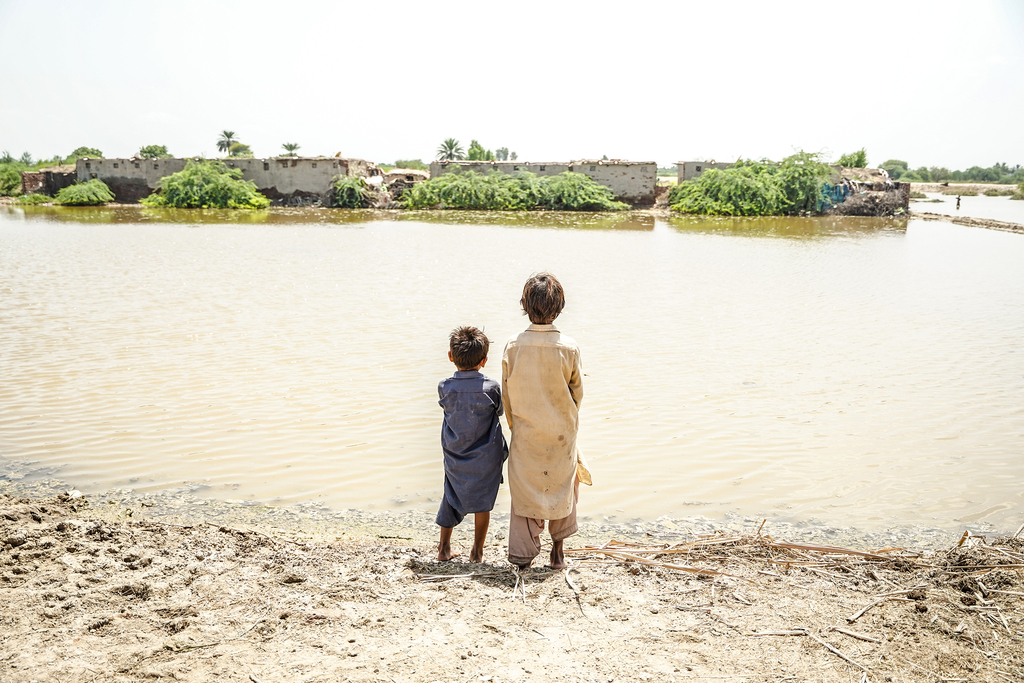
Through our membership of the Disasters Emergency Committee (DEC) we worked to raise awareness about the crisis, and by the end of 2022, we had raised more than £10 million to support our flood response.
The global food crisis deepened as the war in Ukraine impacted the availability of both food and fuel, while climate change and forced migration left millions more people hungry. In response, Islamic Relief delivered its largest-ever single project targeting hunger.
In 8 African countries, the Global Hunger Prevention and Response Programme not only provided food, it worked to address the root causes of hunger through initiatives such as supporting nutrition and healthcare programmes, staging cooking demonstrations, and investing in livestock.
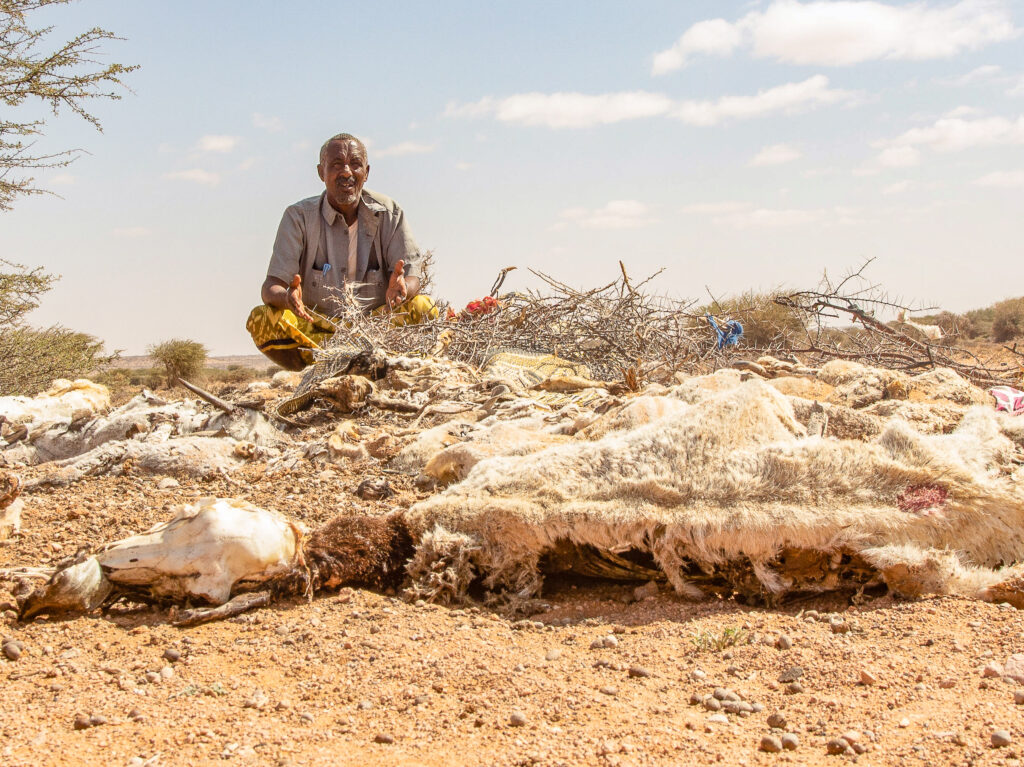
Countries in the Horn of Africa, including Somalia (pictured), are suffering from 5 consecutive failed rainy seasons. Islamic Relief is working to address the resultant hunger not only by providing food by also repairing water infrastructure, running training on nutrition and other activities
In Yemen, another country gravely affected by the hunger crisis, Islamic Relief reached over 2.3 million people with food aid, including as one of the leading partners of the United Nation’s World Food Programme (WFP).
We supported long-term development
As some emergencies became protracted crises, Islamic Relief implemented long-term projects to fuel recovery and development.
We spent £75.2 million on more than 300 development projects around the world, improving access to education, healthcare, clean water and sustainable incomes for millions of people.
Through a landmark partnership with the United Nations Development Programme (UNDP), we worked to empower women in Afghanistan to start and grow their businesses.
The project also aims to inject cash into local economies and boost food production through cash-for-work initiatives, such as repairing canal infrastructure.
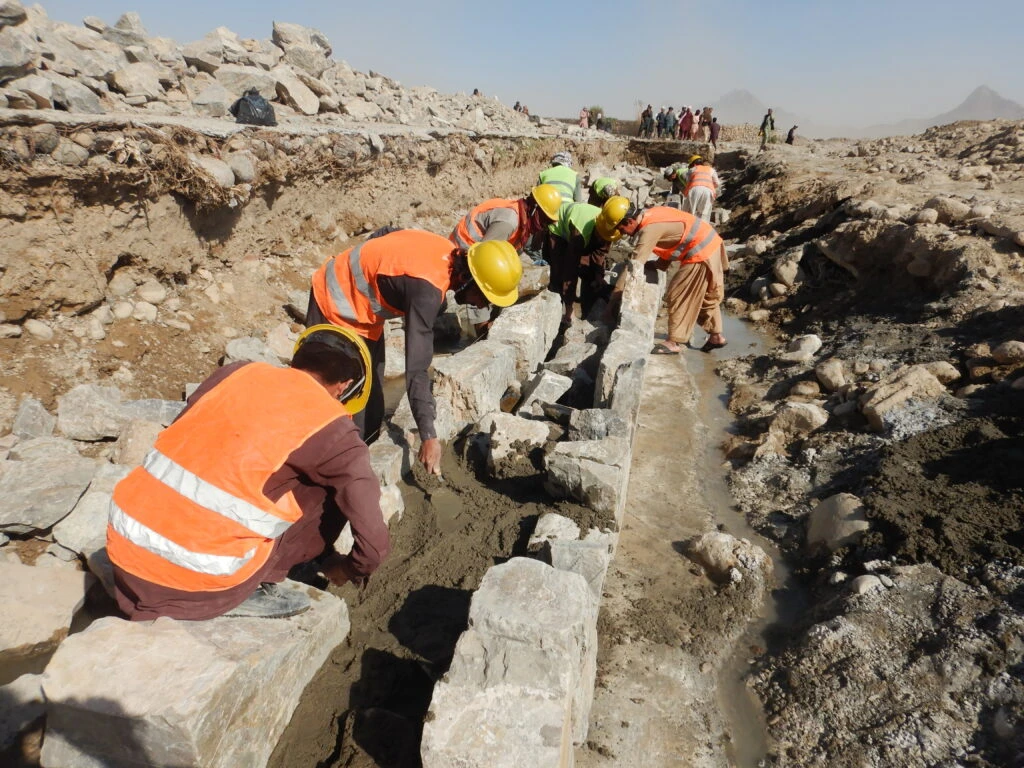
By the end of 2022, more than 158,000 people accessed employment opportunities through the project and more than 200,000 farmers had benefitted from the irrigation work.
In the long term, this project will enable more than 1 million people to gain reliable access to food.
In 2022, we also supported more than 149,000 children and adults to gain an education and provided healthcare to over 2.6 million people. While 17 projects around the world improved the resilience of nearly 456,000 people to climate change.
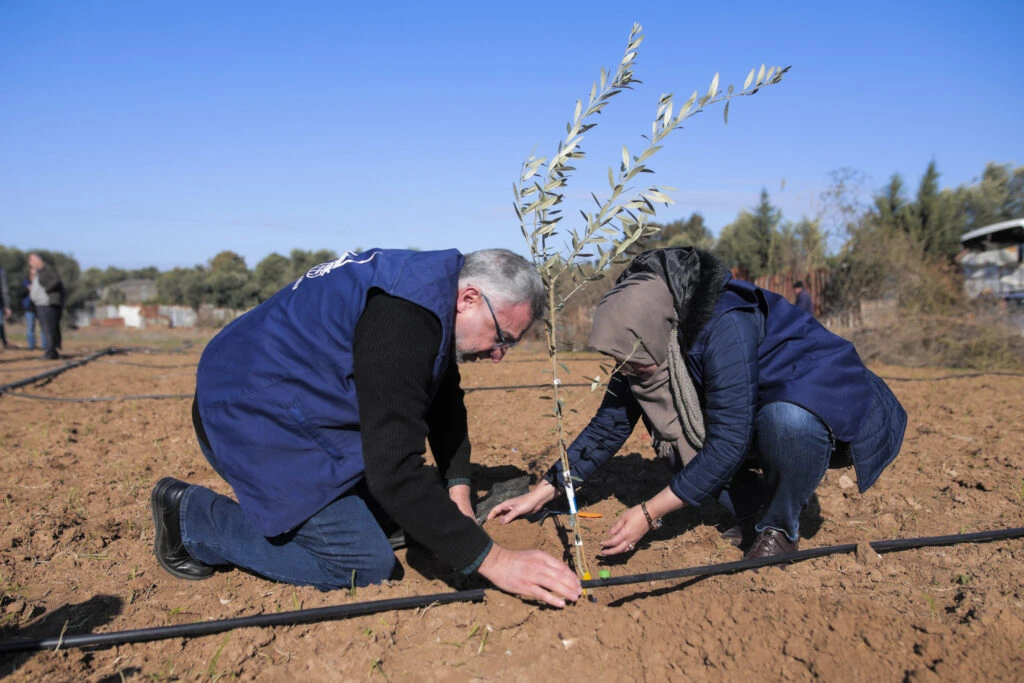
The generosity of our donors helped us provide access to clean water, sanitation and hygiene facilities to over 1.15 million people, and enabled us to support nearly 93,000 vulnerable children through our orphan sponsorship programme.
We campaigned for positive change
Islamic Relief continued advocating for women and girls, refugees and displaced people and those hit hardest by the harmful effects of climate change, spending £1.6 million campaigning for positive change.
Through speaking out about the root causes of poverty, suffering and inequality, we strove to make a lasting impact on the lives of those we serve.
In 2022, we published research highlighting the impact of climate change on vulnerable communities in Indonesia and Pakistan, as well as policy papers detailing Islamic Relief’s stance on climate-induced migration and climate finance.
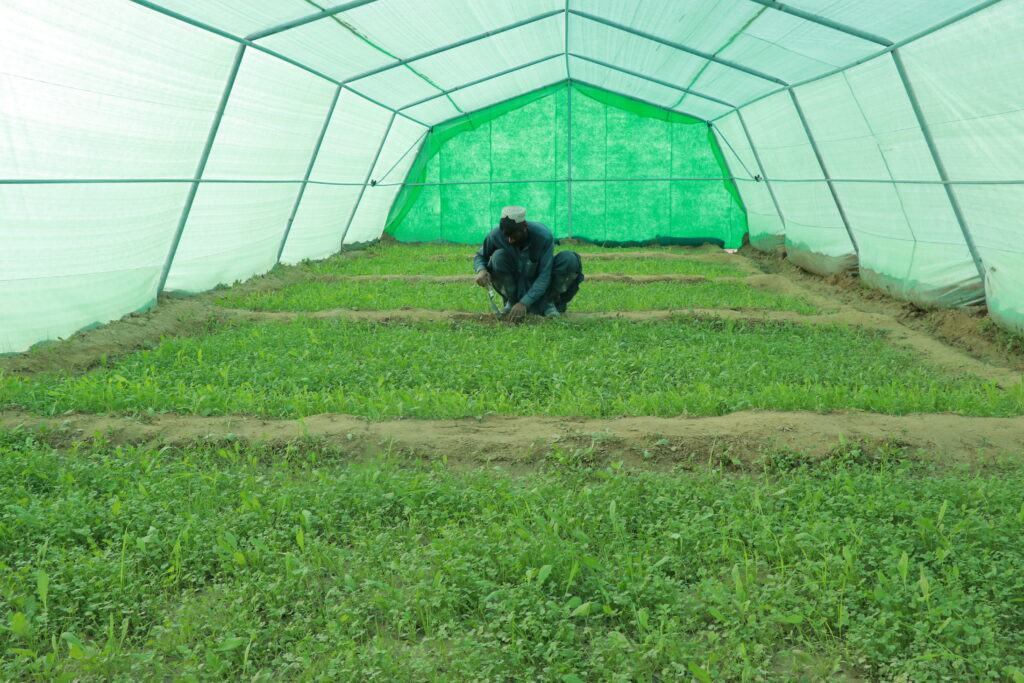
In 2022, Islamic Relief continued to campaign on behalf of communities impacted by the negative effects of climate change
In November, we engaged virtually with negotiations at the COP27 climate summit in Egypt, published articles in the influential ECO daily newsletter, and joined other organisations in securing pivotal agreements to address loss and damage caused by climate disasters.
In 11 countries, our 16 Days of Activism activities raised awareness of gender-based violence (GBV), and we remained tireless in our efforts to shift attitudes within communities to harmful practices such as female genital mutilation/cutting (FGM/C) and early and forced marriage.
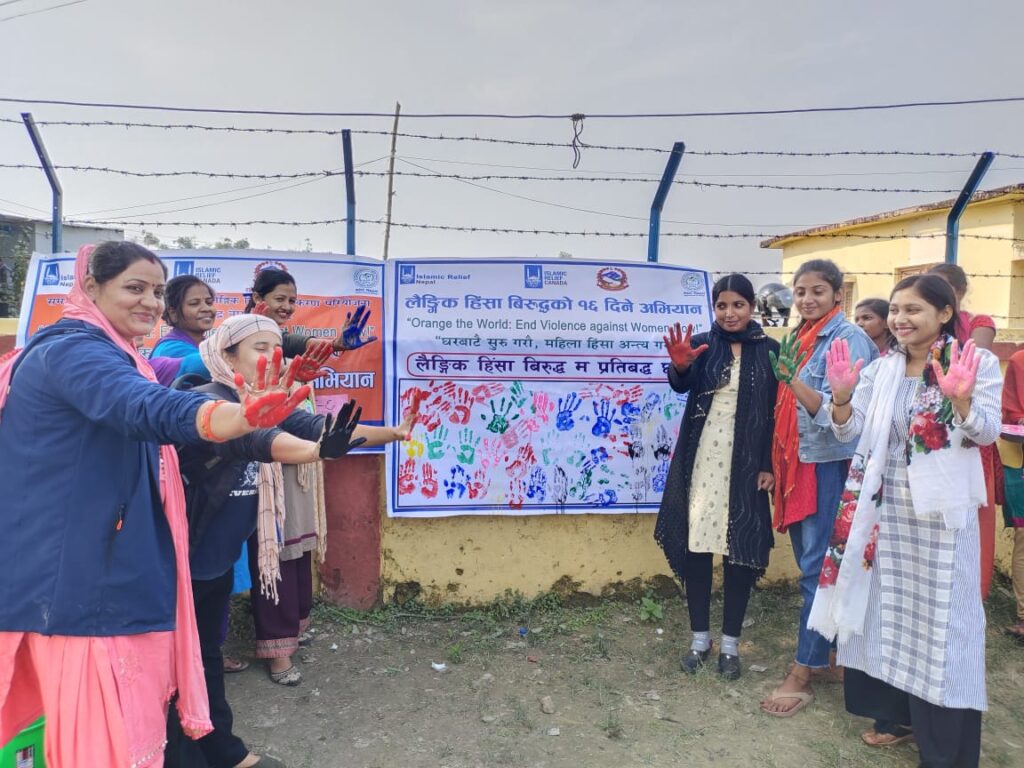
Women in Nepal campaign against gender-based violence (GBV) as part of the 16 Days of Activism campaign
We also reached 154,000 women, children and older people with disabilities through our protection and inclusion work and continue to ensure that the needs of people with disabilities are addressed through our programming.
We joined together to work towards shared goals
Islamic Relief continued to strengthen its partnerships with other humanitarian organisations in 2022.
In June, we teamed up with HIAS and the Lutheran World Federation (LWF) to bring together faith actors from 37 countries to share experiences and lessons on faith-sensitive responses to the global displacement crisis at the annual Welcoming the Stranger conference in Geneva.
Throughout the year, our Humanitarian Academy for Development (HAD) delivered training to more than 200 humanitarians at Islamic Relief and other organisations, enabling them to build their skills in areas such as proposal and report writing and strategic planning.
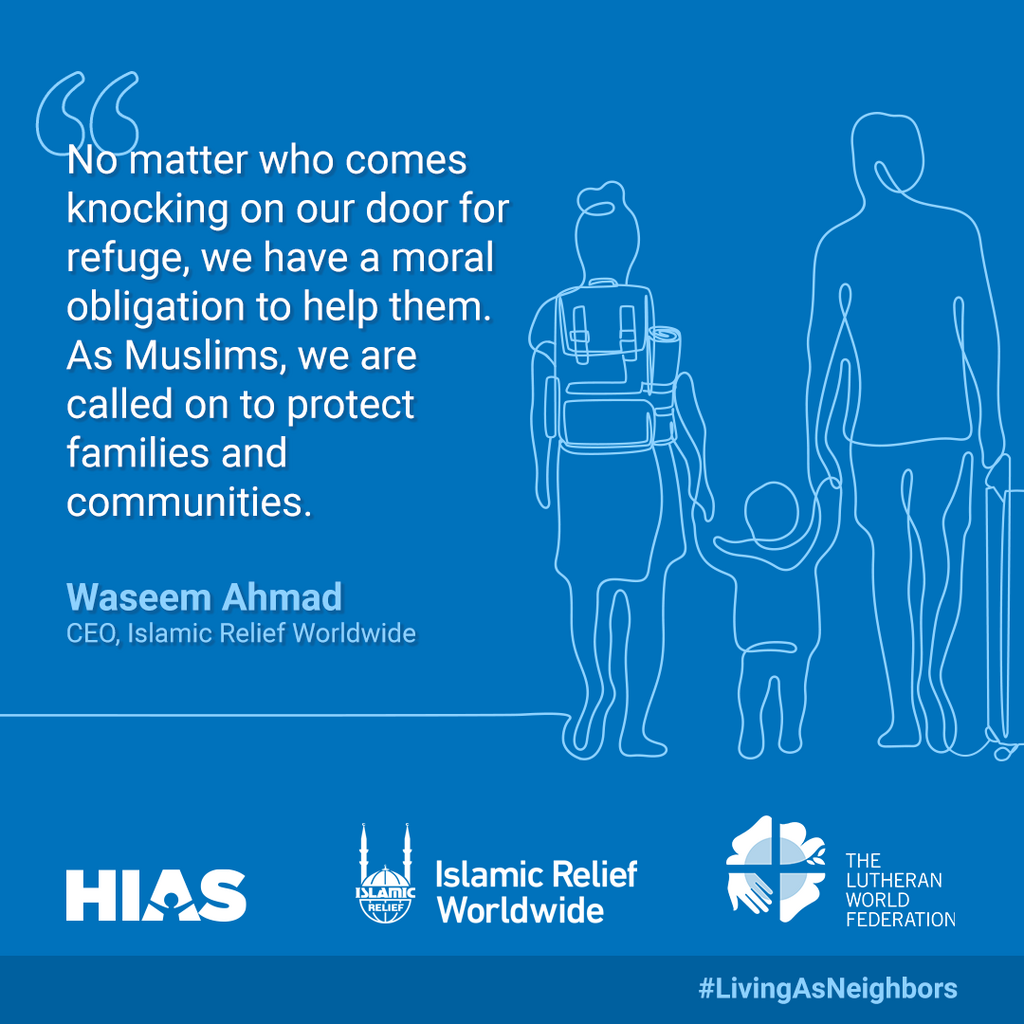
Meanwhile, we continued to help local organisations improve their ability to respond to emergencies and support development, to ensure services for even more people in need.
As the cost of living worldwide rose sharply, Islamic Relief married our international efforts with supporting those in need in the UK through a number of domestic partnerships.
We will continue to stand with vulnerable people
As we look back on the milestones of 2022, it is with an awareness that there is still so much that needs to be done. Communities continue to feel the effects of many of the crises that began in 2022, while already in 2023 conflict, disasters, and climate change have disrupted the lives of millions.
At Islamic Relief, our commitment to standing with vulnerable people around the world remains unshaken. We will continue to offer support whenever and wherever it is needed most, developing our response to fit the changing needs of those we serve.
We sincerely thank our incredibly generous donors and partners for their continued support in these challenging times.
Read more about how this support has made a difference to the lives of millions of vulnerable people around the world in Islamic Relief’s 2022 Annual Report.
Please help us continue our vital work assisting and empowering the world’s most vulnerable people. Donate now.










